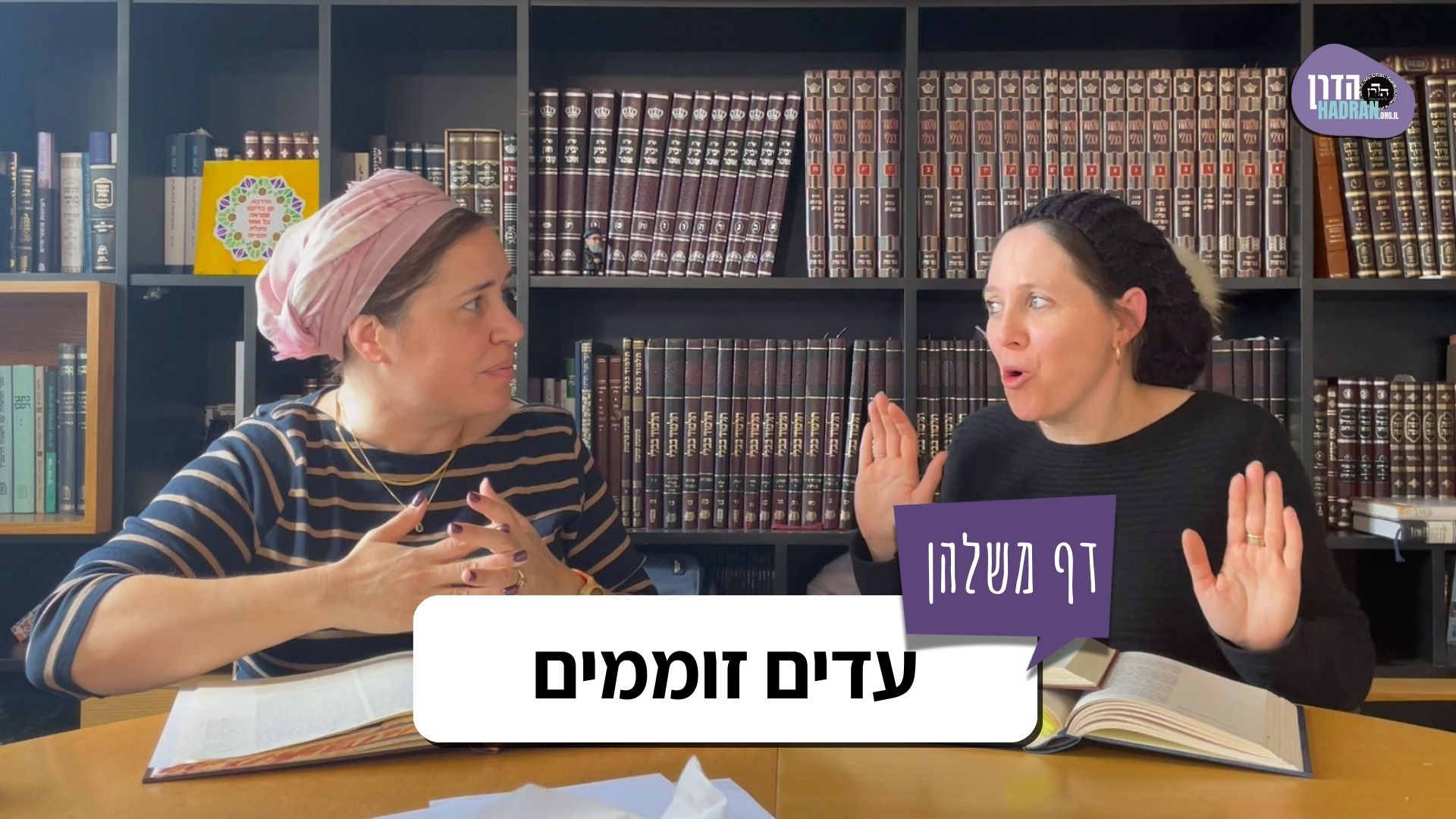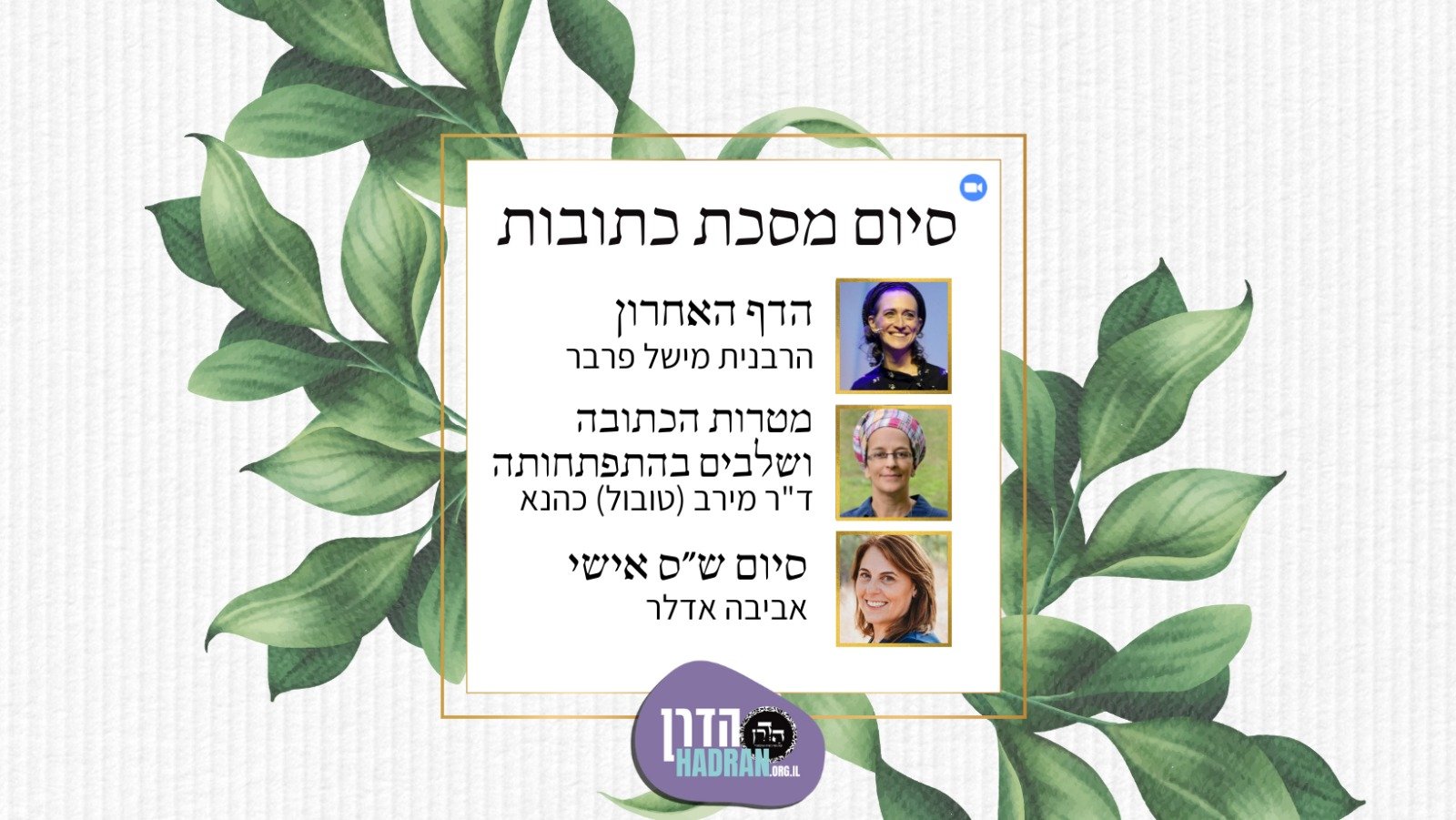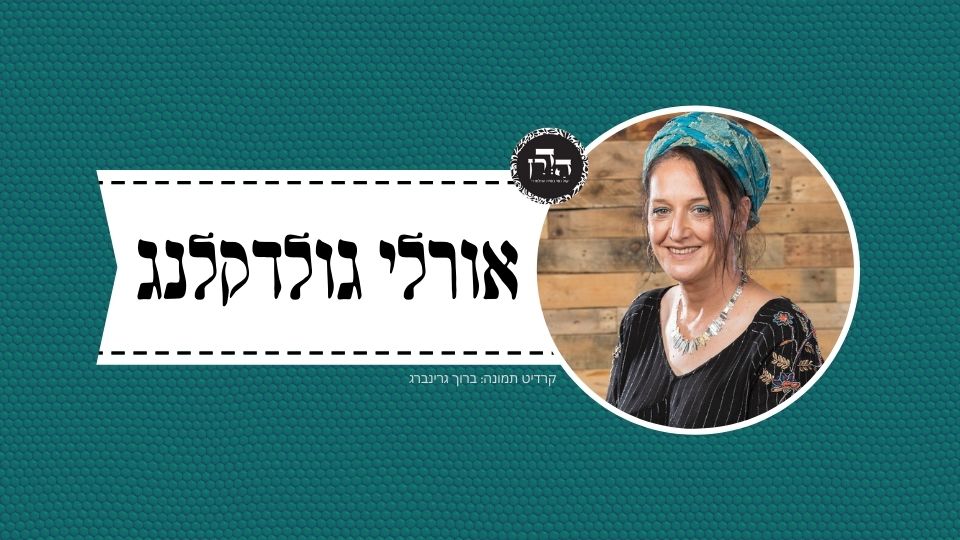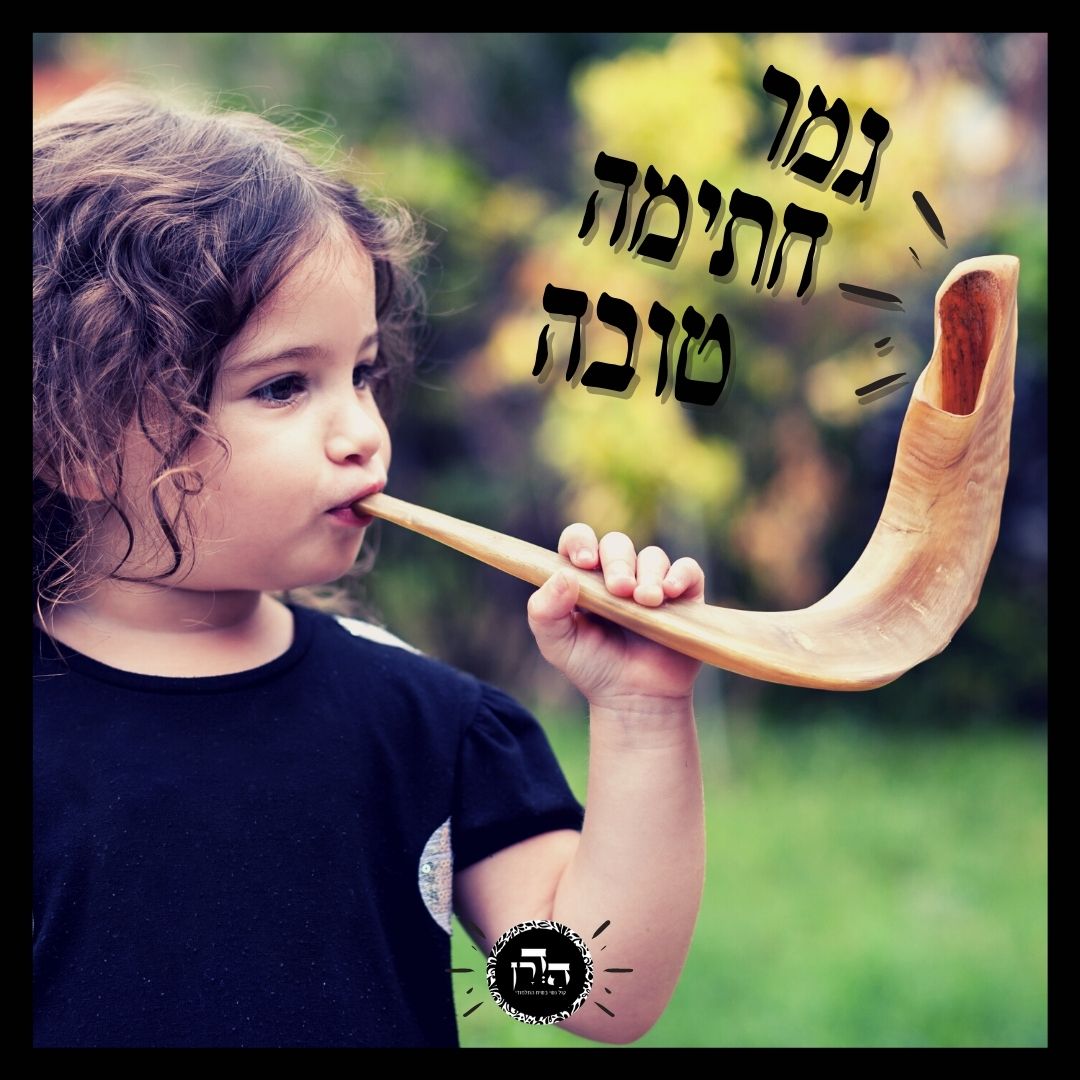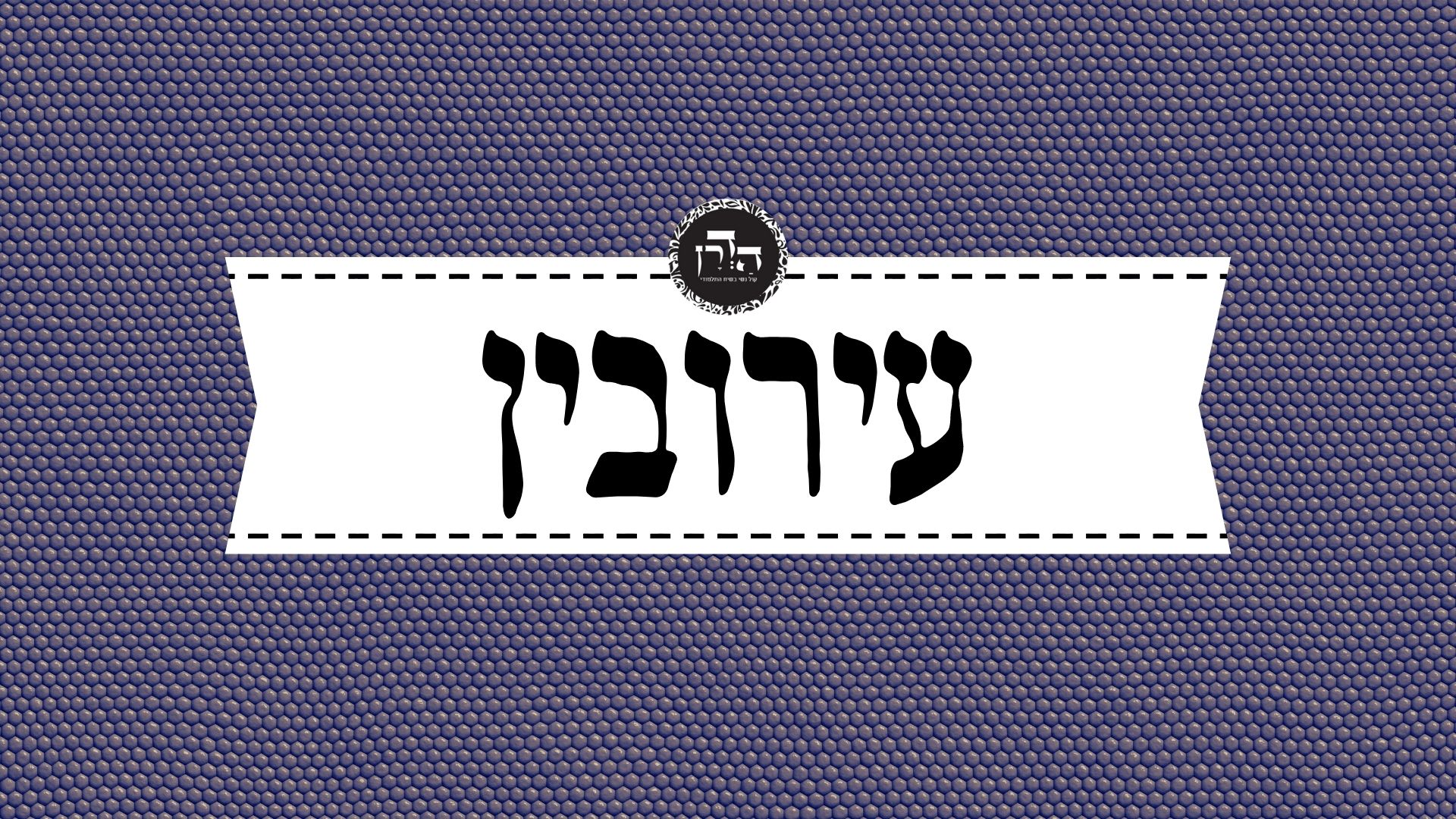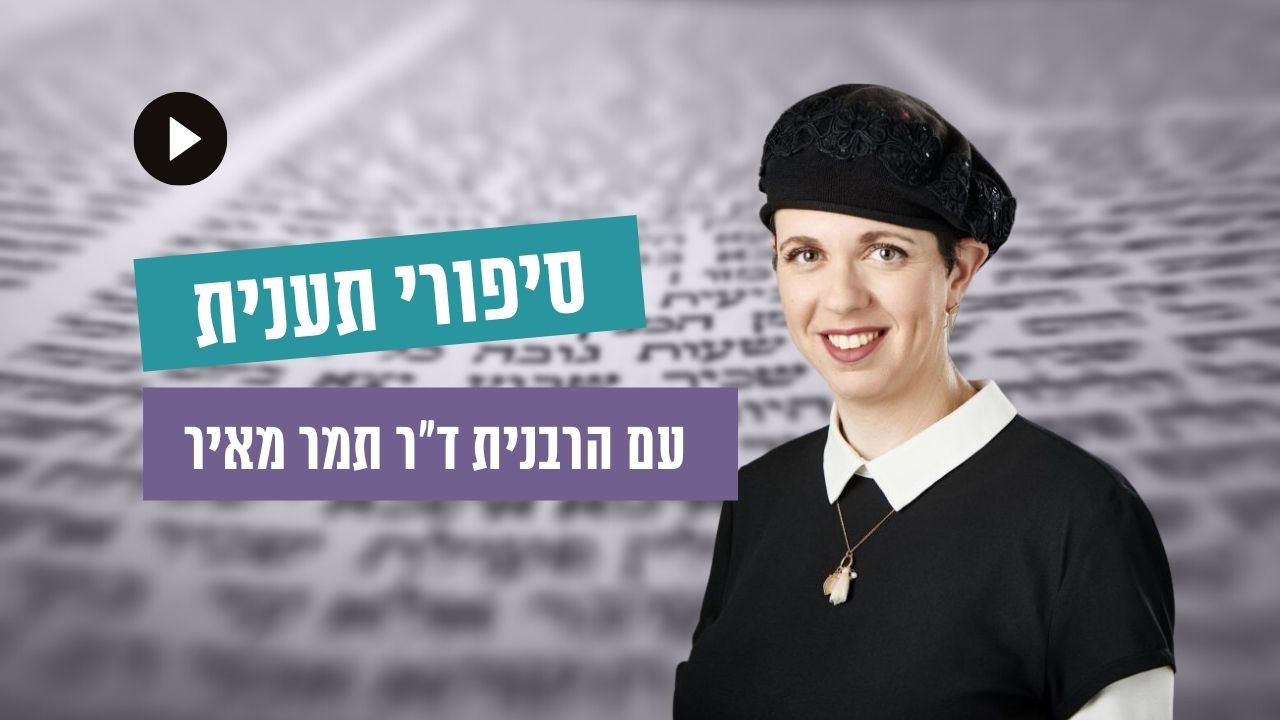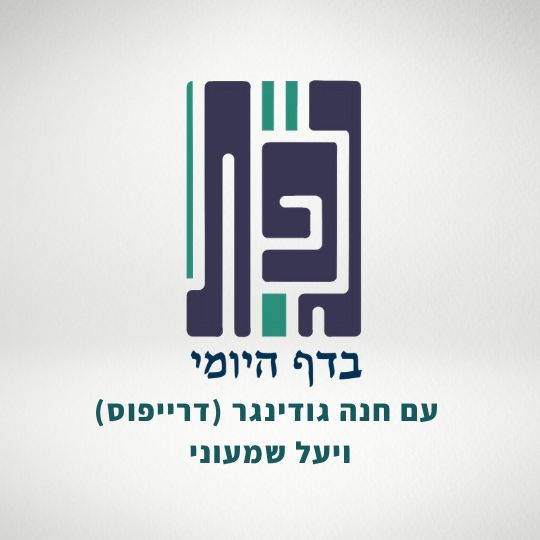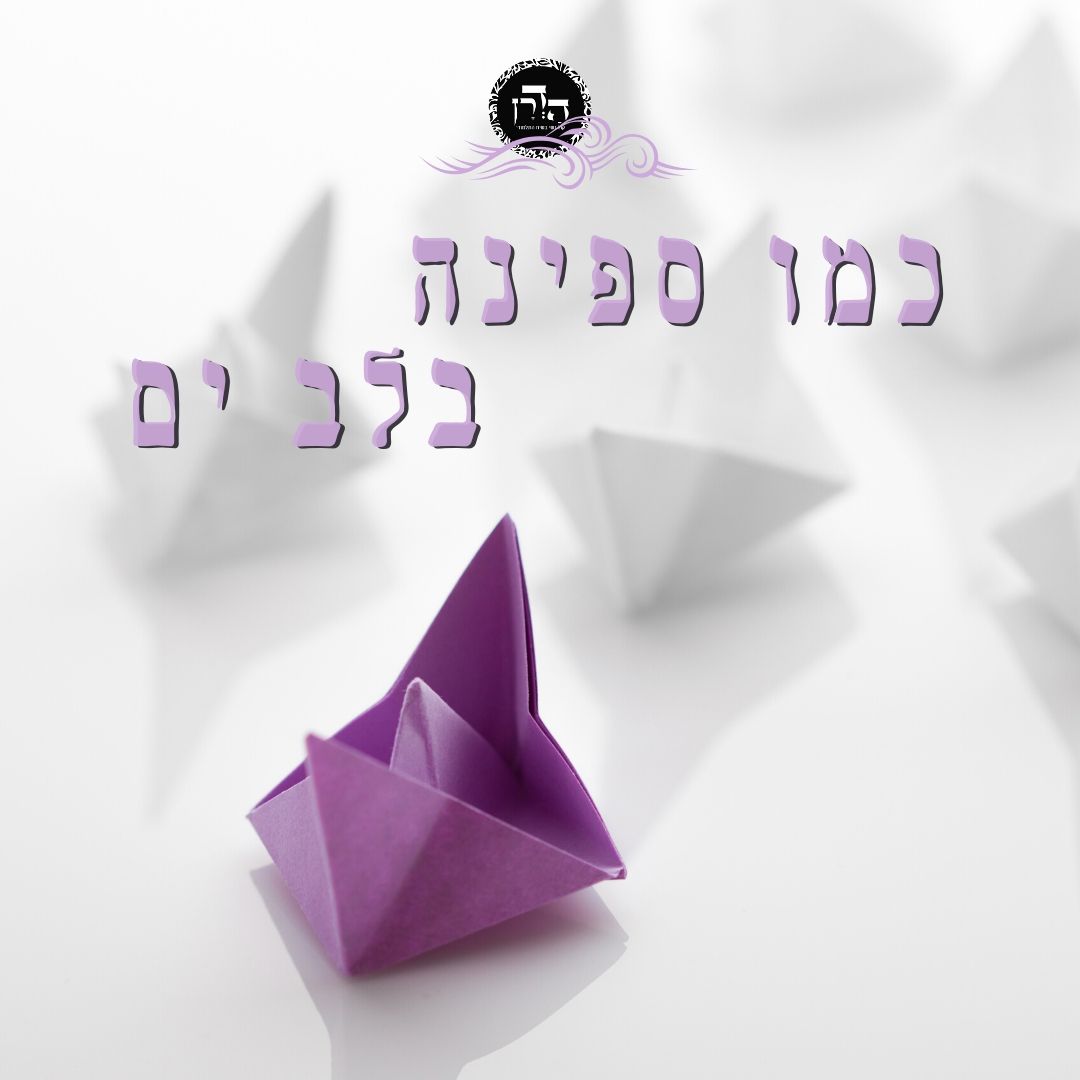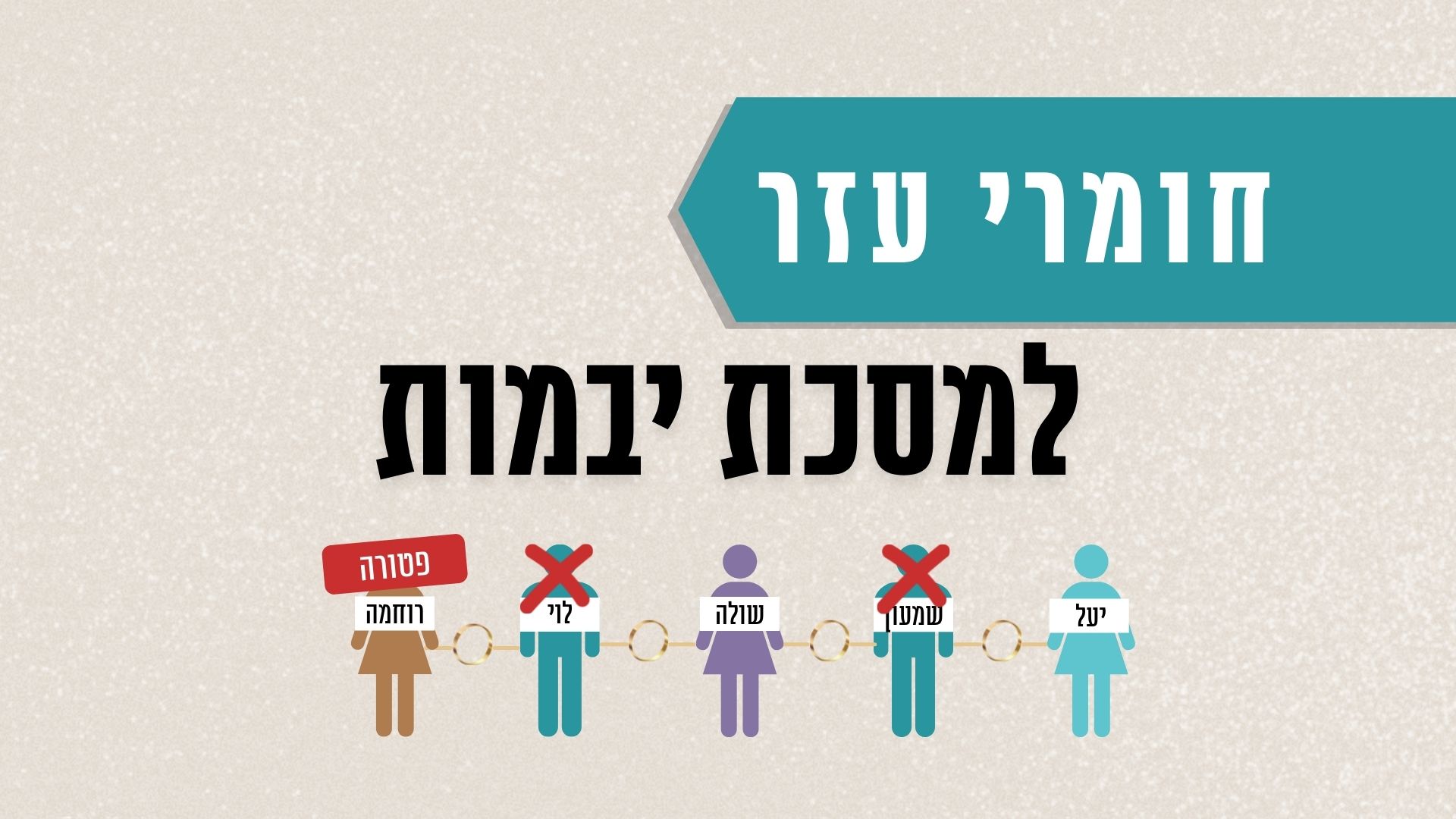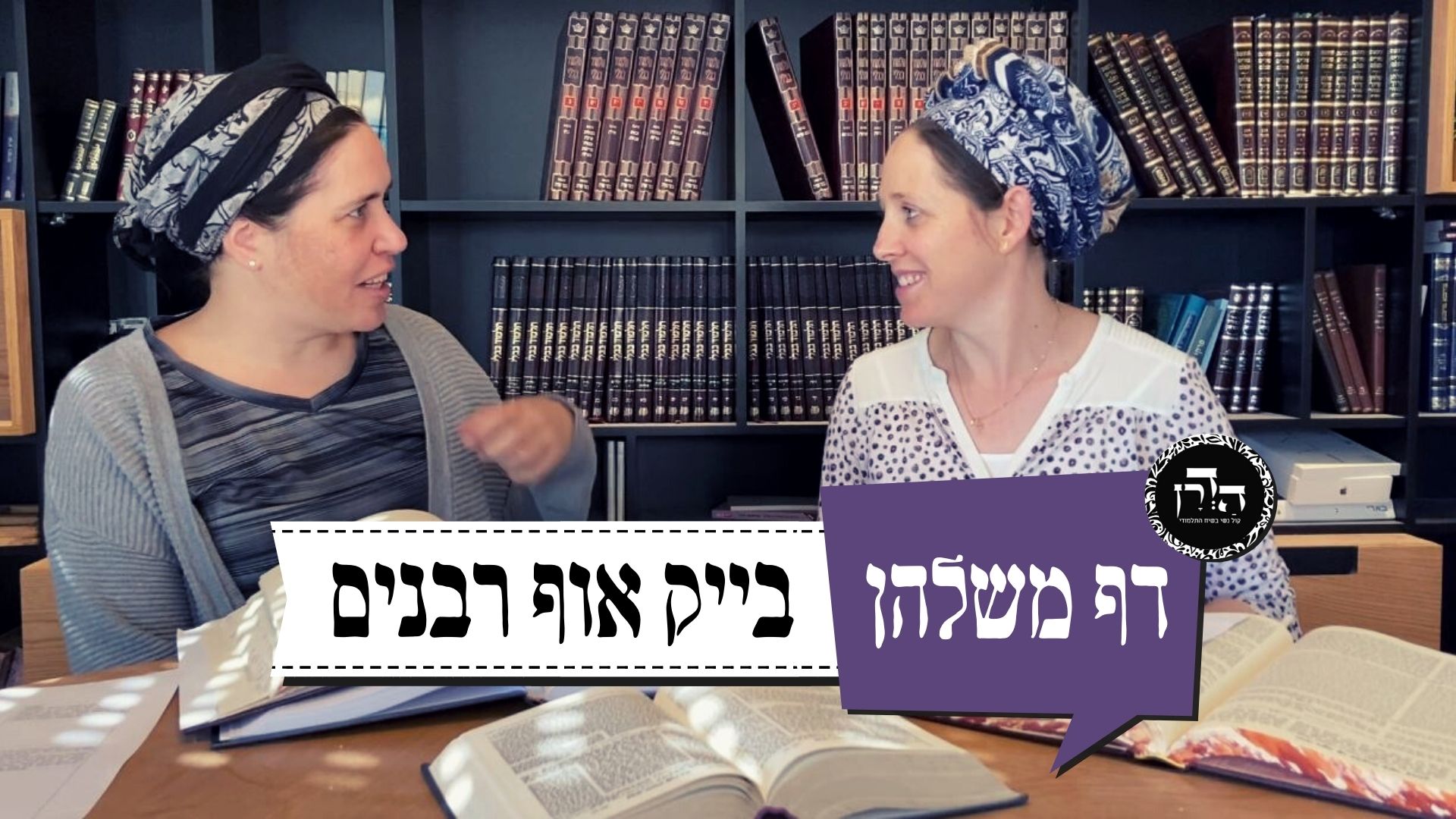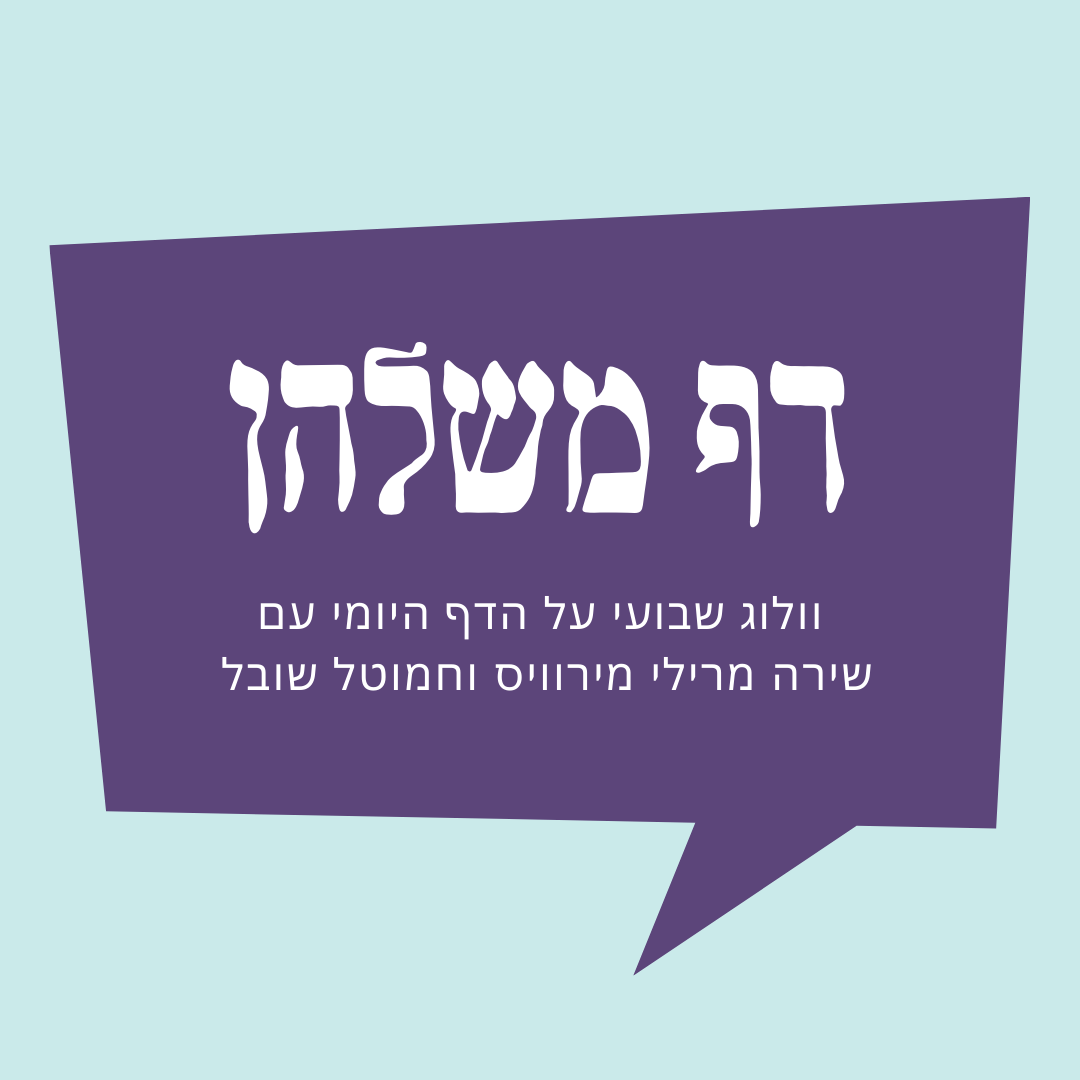באיזה דרכים שונה הדין לילדה שלא הגיע זמנה לראות (שלא הגיעה לגיל שבדרך כלל מקבלים מחזור) אבל היא ראתה דם?
רוצה להקדיש שיעור?
כלים
העמקה
רוצה להבין מה באמת קורה מתחת לפני השטח של הסוגיה?
שיעורים, פודקאסטים והרחבות של מיטב המורות שלנו יפתחו לך עוד זוויות וכיווני חשיבה.
חדשה בלימוד הגמרא?
זה הדף הראשון שלך? איזו התרגשות עצומה! יש לנו בדיוק את התכנים והכלים שיעזרו לך לעשות את הצעדים הראשונים ללמידה בקצב וברמה שלך, כך תוכלי להרגיש בנוח גם בתוך הסוגיות המורכבות ומאתגרות.
פסיפס הלומדות שלנו
גלי את קהילת הלומדות שלנו, מגוון נשים, רקעים וסיפורים. כולן חלק מתנועה ומסע מרגש ועוצמתי.
נדה י
הֲדַר קָחָזְיָא בְּעוֹנוֹת, מַאי? אָמַר רַב גִּידֵּל אָמַר רַב: פַּעַם רִאשׁוֹנָה וּשְׁנִיָּה — דַּיָּהּ שְׁעָתָהּ, שְׁלִישִׁית — מְטַמְּאָה מֵעֵת לְעֵת וּמִפְּקִידָה לִפְקִידָה.
The Gemara asks: What is the halakha if she then sees menstrual blood at regular intervals of thirty-day cycles? Is her time sufficient, or does she transmit impurity retroactively? Rav Giddel says that Rav says: With regard to the first time and the second time that she sees menstrual blood, her time is sufficient. After the third time, she transmits impurity retroactively for a twenty-four-hour period or from examination to examination.
וְעוֹד עָבְרוּ עָלֶיהָ שָׁלֹשׁ עוֹנוֹת, וְרָאֲתָה — דַּיָּהּ שְׁעָתָהּ. הֲדַר קָחָזְיָא בְּעוֹנוֹת, מַאי?
The baraita further teaches, with regard to a young girl who did not experience bleeding for three typical cycles and then saw blood, and three further expected menstrual cycles passed without her experiencing bleeding and then afterward she saw menstrual blood, that her time is sufficient. The Gemara asks: What is the halakha if she then sees menstrual blood at regular intervals of thirty-day cycles?
אָמַר רַב כָּהֲנָא, אָמַר רַב גִּידֵּל, אָמַר רַב: פַּעַם רִאשׁוֹנָה — דַּיָּהּ שְׁעָתָהּ, שְׁנִיָּה — מְטַמְּאָה מֵעֵת לְעֵת וּמִפְּקִידָה לִפְקִידָה.
The Gemara answers: Rav Kahana says that Rav Giddel says that Rav says: The first time that she sees menstrual blood, her time is sufficient. After the second time, she transmits impurity retroactively for a twenty-four-hour period or from examination to examination.
מַנִּי? רַבִּי הִיא, דְּאָמַר: בִּתְרֵי זִימְנֵי הָוֵי חֲזָקָה.
The Gemara asks: Who is the tanna of the baraita? The Gemara answers: Since the baraita teaches that she attains the status of a regular adult woman upon the third sighting of menstrual blood, apparently it is Rabbi Yehuda HaNasi, who said that presumption is established by two occasions.
אֵימָא סֵיפָא: עָבְרוּ עָלֶיהָ שָׁלֹשׁ עוֹנוֹת וְרָאֲתָה — דַּיָּהּ שְׁעָתָהּ, אֲתָאן לְרַבִּי אֱלִיעֶזֶר!
The Gemara raises a difficulty: Say the latter clause: If she then passed three expected menstrual cycles without experiencing bleeding, and then she saw menstrual blood, she returns to the status of a young girl and her time is sufficient. In this ruling we come to the opinion of Rabbi Eliezer, who holds that any woman who passed three expected menstrual cycles without experiencing bleeding is presumed not to be menstruating and her time is sufficient. Is the baraita in accordance with the opinion of Rabbi Yehuda HaNasi or Rabbi Eliezer?
וְכִי תֵימָא רַבִּי הִיא, וּבְעוֹנוֹת סָבַר לַהּ כְּרַבִּי אֱלִיעֶזֶר, וּמִי סָבַר לַהּ? וְהָא לְאַחַר שֶׁנִּזְכַּר קָאָמַר! אֶלָּא רַבִּי אֱלִיעֶזֶר הִיא, וּבִוְסָתוֹת סָבַר לַהּ כְּרַבִּי.
And if you would say that the tanna of the baraita is Rabbi Yehuda HaNasi, and in the case of a woman who passes three menstrual cycles without experiencing bleeding, he holds in accordance with the opinion of Rabbi Eliezer, but does he really hold in accordance with this opinion? Doesn’t the baraita state that after Rabbi Yehuda HaNasi remembered that several authorities disagreed with the ruling of Rabbi Eliezer, he said: Rabbi Eliezer is worthy to rely upon in exigent circumstances, i.e., only in exigent circumstances. The Gemara concludes: Rather, the tanna of the baraita is Rabbi Eliezer, and with regard to menstrual cycles he holds in accordance with the opinion of Rabbi Yehuda HaNasi, that a presumptive cycle is established after two occasions of seeing menstrual blood.
כֶּתֶם שֶׁבֵּין רִאשׁוֹנָה וּשְׁנִיָּה — טָהוֹר, שֶׁבֵּין שְׁנִיָּה וּשְׁלִישִׁית — חִזְקִיָּה אָמַר: טָמֵא, רַבִּי יוֹחָנָן אָמַר: טָהוֹר. חִזְקִיָּה אָמַר: טָמֵא, כֵּיוָן דְּאִילּוּ חָזְיָא מְטַמְּאָה — כִּתְמַהּ נָמֵי טָמֵא, וְרַבִּי יוֹחָנָן אָמַר: טָהוֹר, כֵּיוָן דְּלָא אִתַּחְזַקָה בְּדָם — כִּתְמַהּ נָמֵי לָא מְטַמֵּינַן לַהּ.
§ With regard to a young girl who was just starting to menstruate, the Gemara states: If she finds a blood stain between the first and second time that she sees menstrual blood, she is pure. If it is between the second and the third time, Ḥizkiyya says: She is impure; Rabbi Yoḥanan says: She is pure. The Gemara explains the reasoning behind their respective opinions. Ḥizkiyya says: She is impure, since if she had seen menstrual blood it would render her impure. Consequently, her blood stain is also impure. And Rabbi Yoḥanan says: She is pure, since she has not yet attained the presumptive status of one who sees menstrual blood. Therefore, we also do not render her impure on account of her blood stain.
מַתְקֵיף לַהּ רַבִּי אִלְעַאי: וְכִי מָה בֵּין זוֹ לִבְתוּלָה שֶׁדָּמֶיהָ טְהוֹרִין? אֲמַר לֵיהּ רַבִּי זֵירָא: זוֹ שִׂירְפָהּ מָצוּי וְזוֹ אֵין שִׂירְפָהּ מָצוּי.
Rabbi Ilai objects to this ruling of Ḥizkiyya: And what is the difference between this case of a girl who has not yet started menstruating and a recently married menstrual virgin whose stain is deemed pure for as long as her blood is pure, since the stain is presumed to be from her torn hymen? Rabbi Zeira said to him: With regard to this menstrual virgin, her secretion [sirfah] is common, i.e., blood from her torn hymen is normally found during this period. Therefore, any blood stain that is found is also assumed to be from her hymen. But in the case of this young girl, her secretion is not common. Therefore, if a blood stain is found, it is assumed to be menstrual blood.
אָמַר עוּלָּא, אָמַר רַבִּי יוֹחָנָן מִשּׁוּם רַבִּי שִׁמְעוֹן בֶּן יְהוֹצָדָק: תִּינוֹקֶת שֶׁלֹּא הִגִּיעַ זְמַנָּהּ לִרְאוֹת, וְרָאֲתָה פַּעַם רִאשׁוֹנָה וּשְׁנִיָּה — רוּקָּהּ וּמִדְרָסָהּ בַּשּׁוּק טָהוֹר, כִּתְמָהּ נָמֵי טָהוֹר. וְלָא יָדַעְנָא אִם דִּידֵיהּ, אִם דְּרַבֵּיהּ.
§ Ulla says that Rabbi Yoḥanan says in the name of Rabbi Shimon ben Yehotzadak: With regard to a young girl whose time to see the flow of menstrual blood has not arrived and she saw menstrual blood one time and then a second time, but not the third time that would render her a woman who regularly sees menstrual blood, her saliva and her garment that she treads upon that are found in the marketplace are pure if we do not know whether she has menstruated. Likewise, her blood stain is also pure. Ulla added: And I do not know if this ruling with regard to the stain is merely Rabbi Yoḥanan’s own conclusion or if that is also part of the opinion of his teacher.
לְמַאי נָפְקָא מִינָּה? לְמִיהְוֵי דְּבָרָיו שֶׁל אֶחָד בִּמְקוֹם שְׁנַיִם.
The Gemara asks: What difference is there? That is, what does it matter who said it? The Gemara explains: It makes a difference for it to be considered the statement of one Sage in the place of two dissenting opinions. As stated above, Ḥizkiyya disagrees with this ruling and maintains that a young girl’s blood stain is impure after she sees menstrual blood twice. If this statement is both Rabbi Shimon ben Yehotzadak’s opinion and that of Rabbi Yoḥanan, then Ḥizkiyya’s ruling is opposed by two Sages, which means that his is a minority opinion. If it is Rabbi Yoḥanan’s opinion alone, then the two sides are equal, with one Sage maintaining each opinion.
כִּי אֲתָא רָבִין וְכֹל נָחוֹתֵי יַמָּא, אַמְרוּהָ כְּרַבִּי שִׁמְעוֹן בֶּן יְהוֹצָדָק.
When Ravin came from Eretz Yisrael to Babylonia along with all the seafarers [naḥotei yamma], they stated this ruling as the statement of Rabbi Shimon ben Yehotzadak. If so, Rabbi Yoḥanan was relating his own opinion, which echoed that of his teacher, Rabbi Shimon ben Yehotzadak, and therefore the halakha is in accordance with this majority opinion.
אֲמַר רַב חִלְקִיָּה בַּר טוֹבֵי: תִּינוֹקֶת שֶׁלֹּא הִגִּיעַ זְמַנָּהּ לִרְאוֹת, אֲפִילּוּ שׁוֹפַעַת כׇּל שִׁבְעָה — אֵינָהּ אֶלָּא רְאָיָה אַחַת. אֲפִילּוּ שׁוֹפַעַת, וְלָא מִבַּעְיָא פּוֹסֶקֶת? אַדְּרַבָּה, פּוֹסֶקֶת הָוְיָא לַהּ כִּשְׁתֵּי רְאִיּוֹת!
§ Rav Ḥilkiya bar Tovi says: With regard to a young girl whose time to see menstrual blood has not arrived, even if she continuously discharges menstrual blood for all seven days of a typical menstrual period, it is considered as only one sighting of blood and she remains in the category of one who lacks blood until she sees menstrual blood twice more. The Gemara asks: Why did Rav Ḥilkiya bar Tovi stress: Even if she continuously discharges menstrual blood, which indicates that it is not necessary to teach that this is the halakha if she stops seeing a discharge and then starts again? On the contrary, if she stops and restarts it is as though she has had two sightings of menstrual blood.
אֶלָּא, תִּינוֹקֶת שֶׁלֹּא הִגִּיעַ זְמַנָּהּ לִרְאוֹת, וְשׁוֹפַעַת כׇּל שִׁבְעָה — אֵינָהּ אֶלָּא רְאָיָה אַחַת.
The Gemara answers: Rather, this is what Rav Ḥilkiya bar Tovi meant: With regard to a young girl whose time to see menstrual blood has not arrived, and she then continuously discharges menstrual blood for all seven days of a typical menstrual period, it is considered as only one sighting of blood. In other words, he did not state the word: Even.
אָמַר רַב שִׁימִי בַּר חִיָּיא: מַדְלֶפֶת אֵינָהּ כְּרוֹאָה, וְהָא קָחָזְיָא! אֵימָא: אֵינָהּ כְּשׁוֹפַעַת, אֶלָּא כְּפוֹסֶקֶת.
Rav Shimi bar Ḥiyya says: The case of woman who constantly drips menstrual blood is not considered like a full sighting of blood. The Gemara expresses surprise at this claim: But she saw blood. The Gemara answers: Say that what Rav Shimi bar Ḥiyya meant was that she is not considered like one who continuously discharges blood, but rather like one who stops and starts again, even if she drips constantly.
מִכְּלָל דְּשׁוֹפַעַת (נָמֵי) כִּי נַהֲרָא? אֶלָּא אֵימָא: אֵינָהּ אֶלָּא כְּשׁוֹפַעַת.
The Gemara raises a difficulty: From the fact that Rav Shimi bar Ḥiyya claims that a different halakha applies to a woman who constantly drips menstrual blood, it can be inferred that the blood of one who continuously discharges menstrual blood streams like a river for seven days. But this is physically impossible. The Gemara explains: Rather, say that Rav Shimi bar Ḥiyya meant that the status of a woman who constantly drips menstrual blood is nothing other than the status of a woman who continuously discharges blood. In both cases, it is all considered as one sighting.
תָּנוּ רַבָּנַן: חֲזָקָה בְּנוֹת יִשְׂרָאֵל עַד שֶׁלֹּא הִגִּיעוּ לְפִרְקָן — הֲרֵי הֵן בְּחֶזְקַת טׇהֳרָה, וְאֵין הַנָּשִׁים בּוֹדְקוֹת אוֹתָן. מִשֶּׁהִגִּיעוּ לְפִרְקָן — הֲרֵי הֵן בְּחֶזְקַת טוּמְאָה, וְנָשִׁים בּוֹדְקוֹת אוֹתָן.
§ The Sages taught in a baraita: The presumption with regard to the daughters of Israel is that until they have reached their physical maturity they have the presumptive status of ritual purity, and adult women do not need to examine them to check if they are ritually pure before they handle consecrated items or teruma. Once they have reached their physical maturity, they have the presumptive status of ritual impurity, due to the possibility of an unnoticed menstrual discharge, and if they are still minors, adult women must examine them to check if they are ritually pure.
רַבִּי יְהוּדָה אוֹמֵר: אֵין בּוֹדְקִין אוֹתָן בַּיָּד, מִפְּנֵי שֶׁמְּעַוְּותוֹת אוֹתָן, אֶלָּא סָכוֹת אוֹתָן בְּשֶׁמֶן מִבִּפְנִים, וּמְקַנְּחוֹת אוֹתָן מִבַּחוּץ, וְהֵן נִבְדָּקוֹת מֵאֵילֵיהֶן.
Rabbi Yehuda says: They should not examine them by hand, because that is likely to scratch them and ruin their status, as it will be assumed that they are ritually impure with menstrual blood. Rather, they should smear them with oil inside and wipe them off on the outside. And through this method they are automatically examined, i.e., if at that age they are ready to menstruate, the oil will cause the blood to flow.
רַבִּי יוֹסֵי אוֹמֵר: מְעוּבֶּרֶת וְכוּ׳. תָּנֵי תַּנָּא קַמֵּיהּ דְּרַבִּי אֶלְעָזָר: רַבִּי יוֹסֵי אוֹמֵר: מְעוּבֶּרֶת וּמְנִיקָה שֶׁעָבְרוּ עָלֶיהָ שָׁלֹשׁ עוֹנוֹת דַּיָּהּ שְׁעָתָהּ. אֲמַר לֵיהּ: פְּתַחְתְּ בִּ״תְרֵי״ וְסַיֵּימְתְּ בַּ״חֲדָא״!
§ The mishna teaches that Rabbi Yosei says: With regard to a pregnant woman and a nursing woman for whom three expected menstrual cycles passed during which they saw no menstrual blood, if she then saw blood, her time is sufficient. A tanna taught a baraita before Rabbi Elazar: Rabbi Yosei says: With regard to a pregnant woman and a nursing woman for whom three expected menstrual cycles passed during which they saw no menstrual blood, if she then experienced bleeding her time is sufficient. Rabbi Elazar said to him: The structure of your baraita is inconsistent. You opened with two categories of women: A pregnant woman and a nursing woman, and you ended your quote with one, as you concluded in the singular form: Her time is sufficient.
דִּלְמָא מְעוּבֶּרֶת וְהִיא מְנִיקָה קָאָמְרַתְּ, וּמִילְּתָא אַגַּב אוֹרְחֵיהּ קָא מַשְׁמַע לַן — דִּימֵי עִיבּוּרָהּ עוֹלִין לָהּ לִימֵי מְנִיקוּתָהּ, וִימֵי מְנִיקוּתָהּ עוֹלִין לָהּ לִימֵי עִיבּוּרָהּ. כִּדְתַנְיָא: יְמֵי עִיבּוּרָהּ עוֹלִין לָהּ לִימֵי מְנִיקוּתָהּ, וִימֵי מְנִיקוּתָהּ עוֹלִין לָהּ לִימֵי עִיבּוּרָהּ.
Rabbi Elazar continued: Perhaps you are saying that this is a case of a pregnant woman who was also nursing. And if so, the baraita teaches us a matter in passing, that with regard to tallying three menstrual cycles in which she saw no menstrual blood, her days of pregnancy count toward, i.e., combine with, her days of nursing and her days of nursing count toward her days of pregnancy. As it is taught in a baraita: Her days of pregnancy count toward her days of nursing and her days of nursing count toward her days of pregnancy.
כֵּיצַד? הִפְסִיקָה שְׁתַּיִם בִּימֵי עִיבּוּרָהּ, וְאַחַת בִּימֵי מְנִיקוּתָהּ; שְׁתַּיִם בִּימֵי מְנִיקוּתָהּ, וְאַחַת בִּימֵי עִיבּוּרָהּ; אַחַת וּמֶחֱצָה בִּימֵי עִיבּוּרָהּ, וְאַחַת וּמֶחֱצָה בִּימֵי מְנִיקוּתָהּ — מִצְטָרְפוֹת לְשָׁלֹשׁ עוֹנוֹת.
The baraita continues: How so? If a woman stopped seeing menstrual blood for two expected menstrual cycles during her days of pregnancy and then for one more cycle during her days of nursing, or she passed two expected menstrual cycles during her days of nursing and one more during her days of pregnancy, or one and a half cycles during her days of pregnancy and one and a half cycles during her days of nursing, in all these cases the missed cycles spanning her pregnancy and nursing combine to a total of three missed cycles, and therefore her time is sufficient.
בִּשְׁלָמָא יְמֵי עִיבּוּרָהּ עוֹלִין לָהּ לִימֵי מְנִיקוּתָהּ, מַשְׁכַּחַתְּ לַהּ דְּקָמְנִיקָה וְאָזְלָא וּמִיעַבְּרָה, אֶלָּא יְמֵי מְנִיקוּתָהּ עוֹלִין לָהּ לִימֵי עִיבּוּרָהּ, הֵיכִי מַשְׁכַּחַתְּ לַהּ?
The Gemara asks: Granted, with regard to the claim that her days of pregnancy count toward her days of nursing, you can find it in a case where she was nursing continuously and then she became pregnant. But the scenario mentioned in the baraita where her days of nursing count toward her days of pregnancy, how can you find these circumstances? Since she certainly experienced bleeding when she gave birth, how can there be three consecutive menstrual cycles where she did not experience any discharge of blood?
אִיבָּעֵית אֵימָא: בְּלֵידָה יַבִּשְׁתָּא, וְאִיבָּעֵית אֵימָא: דַּם נִדָּה לְחוֹד וְדַם לֵידָה לְחוֹד, וְאִיבָּעֵית אֵימָא: תְּנִי חֲדָא.
The Gemara provides several answers: If you wish, say that it is referring to a case of a dry birth, i.e., one without any discharge of blood. Or, if you wish, say: The blood of a menstruating woman is discrete and the blood seen during birth is discrete. Blood seen during birth does not disrupt the count of menstrual cycles during which a woman does not see menstrual blood. Therefore, the cycles before and after the birth combine to form the requisite three cycles according to Rabbi Eliezer. Or, if you wish, say: Teach only one of these scenarios. In other words, teach only the case where the days of pregnancy count toward the days of nursing, but not the case where the days of nursing count toward the days of pregnancy.
בַּמֶּה אָמְרוּ דַּיָּהּ שְׁעָתָהּ וְכוּ׳. אָמַר רַב: אַכּוּלְּהוּ.
§ The mishna teaches: And with regard to what did they say that her time is sufficient? It is with regard to the first sighting of blood. But with regard to the second sighting, her status is like that of any other woman and she transmits impurity for a twenty-four-hour period or from her last examination. The Gemara inquires concerning which case this clause is referring to. Rav says: This qualification is stated with regard to all of them, i.e., all four cases of the mishna: The menstrual virgin, the elderly woman, the pregnant woman, and the nursing woman.
וּשְׁמוּאֵל אָמַר: לֹא שָׁנוּ אֶלָּא בְּתוּלָה וּזְקֵנָה, אֲבָל מְעוּבֶּרֶת וּמְנִיקָה — דַּיָּין כׇּל יְמֵי עִיבּוּרָן, דַּיָּין כׇּל יְמֵי מְנִיקוּתָן.
And Shmuel says: They taught it only with regard to a menstrual virgin and an elderly woman. But in the case of a pregnant woman and a nursing woman, their time is sufficient for all their days of pregnancy and their time is sufficient for all their days of nursing.
וְכֵן אָמַר רַבִּי שִׁמְעוֹן בֶּן לָקִישׁ: אַכּוּלְּהוּ, וְרַבִּי יוֹחָנָן אָמַר: לֹא שָׁנוּ אֶלָּא בְּתוּלָה וּזְקֵנָה, אֲבָל מְעוּבֶּרֶת וּמְנִיקָה — דַּיָּין כׇּל יְמֵי עִיבּוּרָן, דַּיָּין כׇּל יְמֵי מְנִיקוּתָן. כְּתַנָּאֵי: מְעוּבֶּרֶת וּמְנִיקָה שֶׁהָיוּ
The Gemara notes that another pair of Sages had the same dispute. And similarly, Rabbi Shimon ben Lakish says: This qualification applies to all of them; and Rabbi Yoḥanan says: They taught it only with regard to a menstrual virgin and an elderly woman. But in the case of a pregnant woman and a nursing woman, their time is sufficient for all their days of pregnancy and their time is sufficient for all their days of nursing. The Gemara suggests: This is like a dispute between tanna’im in the following baraita: With regard to a pregnant woman and a nursing woman who were

